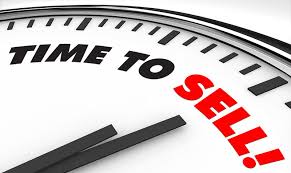
Personally, I gave up trying to predict what the markets will do at any given moment. Many people tried, most failed. This is why I'm trading mix of non-directional strategies aiming to balance each other.
I believe that trading reduced-risk, limited profit, hedged option positions offers the average trader the best opportunity to beat the market because there is no major prognostication required. However, the main factor that determines profitability is not the strategy, but the discipline of the trader to keep risk in line, not violate personal trading rules, and most of all, to truly understand what he/she is doing. Please do not believe that anyone can open an options account and expect the cash to come pouring in.
I came across an excellent blog post by a stock market analyst, Henry Blodget, a cofounder, CEO, and editor-in-chief of Business Insider.
I Don't Know What The Market Is Going To Do!
By Henry Blodget
I have recently expressed a cautious view of the stock market.
Specifically, I've said I think the odds of a sharp decline ("crash") are increasing. And I think the odds are very good that stocks will provide lousy returns from this level over the next 7-10 years.
Well, most people are bullish about the stock market these days (because the market has done so well for so long), and anytime you say something bearish when most people are bullish, you get pelted with rocks and garbage.
Specifically, you get told:
- You are brain dead
- You are not a money manager
- You don't know what the market is going to do
I would like to respond to each of these assertions.
First, my successful commute into work today would suggest that I am not yet brain dead (lots of cognitive decisions and motor movements!), but anything's possible.
Second, I actually am a money manager! I manage money for one client. I know this client's objectives, risk tolerance, and investment time horizon very well. And I try to do an excellent job for him. (That client is me.)
Third, yes, I do not know what the market is going to do.
In my defense, however, I will point out something:
No one else knows what the market is going to do, either.
Fifteen years ago, when I was a Wall Street stock analyst, I initially assumed that there were smart people who actually knew what the market was going to do. For close to 10 years, I kept waiting to meet these people. As I worked my way up the food chain, and gained more market experience myself, I began to realize that the smart folks I initially assumed knew what the market was going to do were wrong about the market just about as often as everyone else. When I learned that, I assumed that I just hadn't met the right smart people yet. So I kept working up the food chain.
And, eventually, when I became a famous stock analyst myself, I got to meet just about everybody, including some of the most legendary stock-market wizards in history. And what I finally realized was that even these folks, as super-smart as they were, didn't know what the market was going to do. They were right about the market slightly more often than all the thousands and thousands of average smart people — and, importantly, they bet big when they thought the odds were very much in their favor. But they didn't know what the market was going to do.
This was a revelation for me.
When I finally realized that no one knows what the market is going to do, I developed a very different philosophy about money management — including, importantly, the management of my own money (some of which I had vaporized by overestimating my own odds of knowing what the market was going to do). That new philosophy — own a diversified portfolio of low-cost index funds and rebalance when the asset weightings get out of whack — was more humble, simpler, safer, and wiser than my prior philosophy (stockpicking, market timing). And it has also been vastly more successful.
When you finally accept and embrace the idea that no one knows what the market is going to do — when you stop looking for that one brilliant fund manager or advisor or analyst who is finally going to make you rich without accidentally making you poor — you will be able to easily outperform the vast majority of other investors, including professionals, with a lot less time, stress, and hassle. And, more importantly, you will be able to radically reduce the odds that, when your manager-du-jour reveals that he or she, too, does not know what the market is going to do, their mistake (and your misplaced trust) will leave you destitute.
So, anyway, yes, I do not know what the market is going to do.

If you are not a member yet, you can join our forum discussions for answers to all your options questions.
For many reasons, which I have articulated in detail here, I believe the odds of a sharp pullback are increasing. And, as I said earlier, I think the odds are very high that stock performance from this level will be lousy over the next 7-10 years.
But, importantly, as I have also said, I am not selling my stocks or going short the market.
First, as I just conceded, I don't know what the market is going to do. (It could theoretically double or triple from here without so much as a 5% dip.) And I would hate to sell out now, pay capital gains taxes, and watch the market blast off to the moon without me.
Second, I have a balanced portfolio and a long investment horizon — by design. If stocks crash 50% over the next couple of years, which I think is possible (though probably not likely), I will be okay. Not happy, but okay. With stocks at half the level of today's prices, the dividends that are being automatically reinvested will buy me twice as many new shares, which will turbocharge my portfolio's performance when the market finally recovers. And, because I also have some cash and bonds, I will be able to rebalance into the stock market at much lower prices.
Third, if I sell out now, even if the market does drop sharply (meaning that I have miraculously timed it correctly), I will have to figure out when to buy back in. If the market drops 10%, I will have to wonder and fret about whether that's the bottom, or whether it will drop another 10%. If I assume it's the bottom, and buy, and the market drops another 10%, I'll feel like an idiot. And same for a 20% drop, a 30% drop, a 40% drop, and so on. (If the market does drop 30%, I will start buying regardless). In short, market timing is really hard and really dangerous. Everyone gets it right sometimes, but few people get it right frequently. And if your investment strategy is based on your being able to make correct timing calls frequently, you're asking for trouble.
And what if the market crashes 50% or 80% and never recovers? What if this is 1929... except with no recovery in the 1930s and 1940s?
Well, then, I'll be screwed.
But if that happens, I'll have more to worry about than the fact that I've lost a lot of paper money. Because the only way stocks will drop 50%-80% and stay down forever is if this country and world go completely off the rails.
(The Russian market went to zero after the revolution in 1917, and it never came back. People who owned stocks and other things just lost them — forever. But you can't live without risk. And if this country and society get dissolved by a communist revolution, or a comet impact, or some other catastrophe, we will all have more important things to worry about than stock prices).
Related articles:
Can you double your account every six months?
Can You Really Turn $12,415 Into $4M?
Why Retail Investors Lose Money In The Stock Market
Why You Should NOT Trust Investment Gurus
3 Words You Won't Hear On CNBC
Want to learn how to trade successfully while reducing the risk?
Start Your Free Trial


There are no comments to display.
Join the conversation
You can post now and register later. If you have an account, sign in now to post with your account.
Note: Your post will require moderator approval before it will be visible.